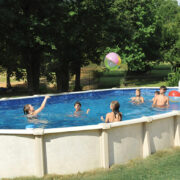Businesses, the government, and typical households all generate waste as a byproduct of economic activity. Because of society’s constant need for different products, it’s no question that there will be an inevitable waste build-up. Managing that waste has economic consequences, including productivity, government spending, and the environment. Environmental protection should be given priority to ensure that future generations can appreciate our planet with beautiful patios and a garden to die for.
The incorrect disposal of rubbish is one of the leading causes of pollution worldwide. Statistics show that in the United States alone, there are more than 200 million tons of garbage being produced each year. Moreover, half of this trash is dumped in landfills, leaving just a small portion to be recycled. In 2013, 254 million tons of garbage were generated, with just 87 million bottles and cans recycled.
To help in reducing the impact on the environment, change must start in everybody’s household by changing daily habits and by applying eco-friendly methods of waste disposal. Did you know you can recycle your yard waste? It’s one of the best things you can do to lessen your carbon footprint and provide a cleaner environment for future generations.
What Is Yard Waste?
There are more and more types of solid waste as the area of waste management grows more specialized and established. Grass clippings, tree trimmings, leaves, and other plant debris are categorized as yard waste. Depending on the time of the year and the location, it contributes to around 5% to 30% of the municipal waste stream. Food and animal waste aren’t included in yard trash unless in the form of contaminants. Compared to home garbage or commercial and industrial debris, yard waste is generally considered the cleanest kind of waste compared to its counterparts the one lying in your wheelbarrow storage.
To help you in dealing with this, here are five eco-friendly methods to dispose of your yard waste:
1. Compost
Leaves and food wastes may be composted to create a beneficial fertilizer for your soil and plants. The process of composting speeds up the decay process by creating an optimal environment for bacteria and fungus to perform their job. Composted material, which may seem like garden soil, is the product of decomposition. In the eyes of a farmer, compost may be referred to as “black gold” since it is full of nutrients and can be used for anything from gardening to farming.
Composting yard trash returns nutrients to the soil and reduces the amount of garbage on the landfill. When yard waste is composted, it may be reduced by 50% to 75% in volume. Before, manure was mainly used as food for plants, but new forms of bacteria that cause food-borne diseases make it uncertain if it’s still safe to use.
2. Burn It
Burning yard trash isn’t the ideal option since it contributes to global warming by releasing carbon monoxide, nitrogen oxide, and other chemicals. But if you have no other choice, it’s better than just putting yard debris away in the garbage. When you burn your yard trash at home, the wood ash may be composted.
Burning yard debris produces ash that may be used in your compost bin as long as all of the things you burn are biodegradable. Ash has a very high alkaline content, for that reason, adding it to your compost helps in balancing its acidity. Additionally, it also creates an ideal environment for composting worms, which speeds up decomposition.
3. Let Someone Else Handle It
When anaerobic bacteria break down organic waste without oxygen in landfills, they release potent greenhouse gases into the sky, contributing to global warming. Our land is also being harmed by not establishing a yard waste management strategy that returns nutrients to the ground. However, if you have no other option, drop it off at a waste disposal site since they’ll have better ways of recycling it.
4. Leave Leaves Alone
While many people sweep and sack leaves to keep their lawns from suffocating and improving the aesthetic of their yards, you can usually leave them alone. Many environmentalists argue raking leaves is detrimental for both your grass and the ecosystem. As the leaves decompose, they produce a natural mulch that inhibits weed growth and fertilizes the soil.
5. Mulching Yard Waste

gardener mulching flower bed with pine tree bark mulch
A mulch is a coating material that you put in the soil’s surface and is used for various reasons, such as limiting weed development and boosting soil fertility. It also reduces evaporation and improves the quantity of water available to plants by preventing soil evaporation. To turn your yard debris into mulch, you can use a wood chipper or employ a tree removal service. Mulching yard waste regularly will avoid too much build-up.
The Takeaway
Now more than ever, people are starting to be more conscious and concerned with the environmental condition of our planet. Many businesses are starting to streamline their processes to be environmentally friendly. And to help in reducing the carbon footprint within our household, we should start by segregating, recycling, and reusing in any way possible.
Although there are many known processes of waste disposal, it’s always ideal to follow eco-friendly strategies to help lessen the damage to nature. The different methods listed above will surely aid in seeking the right eco-friendly waste disposal plan for your yard waste.














Comments